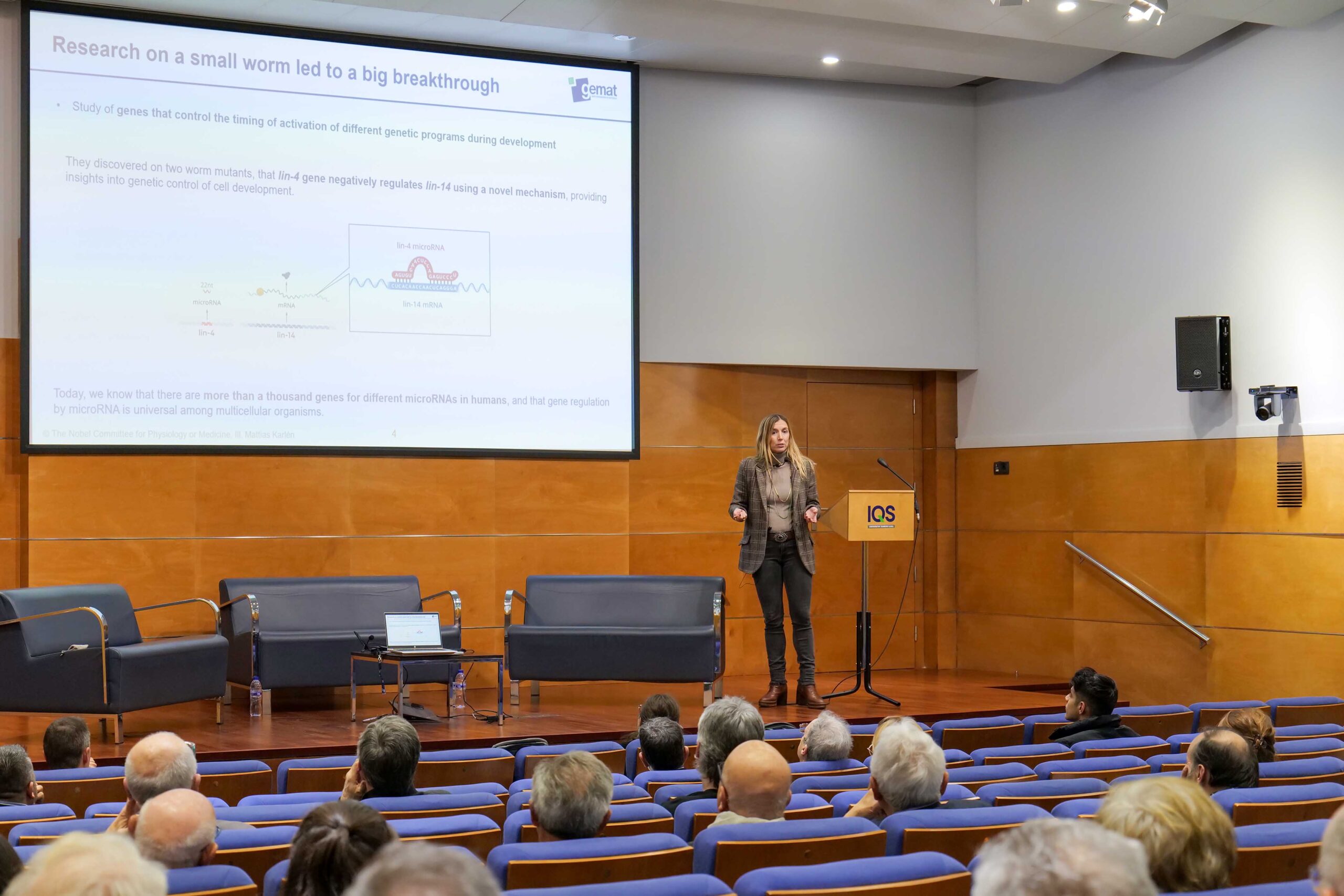IQS has reaffirmed its position at the forefront of international research by identifying how the 2024 Nobel Prizes in Medicine, Chemistry, Physics, and Economics align with its main lines of scientific work. This convergence was highlighted during a recent conference organized by IQS Alumni dedicated to exploring the synergies between the institution’s projects and the achievements recognized by the prestigious awards.
The event showcased the university’s firm commitment to research aimed at solving real challenges and improving quality of life, underlining IQS’s long-term vision and its ability to identify areas of high social and scientific impact.
Medicine: microRNA and therapy advances
Dr Cristina Fornaguera and Dr Marta Guerra, researchers with the Materials Engineering Group (GEMAT), explained the contributions that led Dr Victor Ambros and Dr Gary Ruvkun to receive the Nobel Prize in Medicine for their discovery of microRNA and its impact on gene regulation. Relating this achievement to their work at IQS, they presented research addressing new treatments for complex diseases such as Duchenne muscular dystrophy, various types of cancer, and depressive disorders using innovative nanomedicine techniques.
Chemistry: Computational design of proteins
In the field of Chemistry, Dr David Baker, Dr Demis Hassabis, and Dr John Jumper won the award for their advances in the design and prediction of protein structures, something directly reflected in IQS. Dr Xevi Biarnés, from the Biological and Biotechnological Chemistry Group, explained how they use the AlphaFold program to develop new biocatalysts. For his part, Dr Benjamí Oller, who collaborates directly with Dr Baker, presented his research on the design of proteins to improve treatments against brain tumours using ligands that are activated in the tumour and new transport systems to cross the blood-brain barrier.
Physics: Neural networks and machine learning
The Nobel Prize in Physics, which recognized the contributions to machine learning with neural networks by Dr John J. Hopfield and Dr Geoffrey Hinton, was presented by Dr Albert Fornells (ADAMIQS research group), and Dr Horacio Rostro. Both explained how artificial intelligence has evolved and highlighted projects at IQS related to this area such as the detection of structural failures and the recognition of emotions to identify psychological disorders.
Economics: institutions and prosperity
Dr Flavio Comim, Dean of the IQS School of Management, wrapped up the event by analysing the Nobel Prize in Economics, which was awarded to Dr Daron Acemoglu, Dr Simon Johnson, and Dr James Robinson for their studies on how institutions are formed and how they affect prosperity. Dr Comim underscored how institutions play an essential role in the prosperity of societies, aligning with research from the Sustainability, Economics, and Ethics (SEE) research group at IQS, which studies the relationship between ethics and economic development.
Not only did the event serve to show the alignment of IQS with the highest scientific distinctions, but it also generated an intense debate among the attendees about the future of these lines of research. Dr Borrós, Director of IQS, highlighted that these parallels confirm IQS’s commitment to excellence in both student education and research, reinforcing the university’s position as a leading centre for international scientific research.










